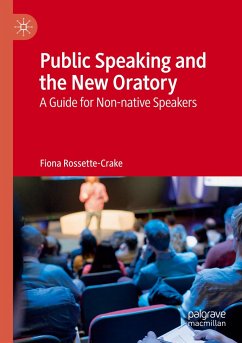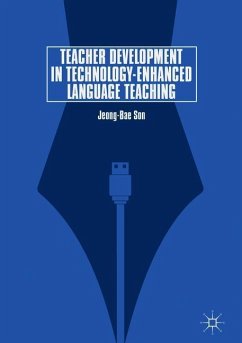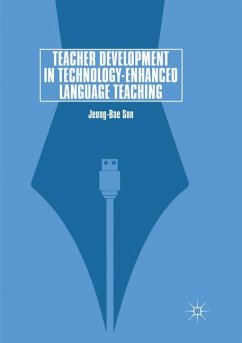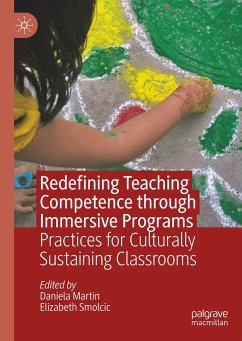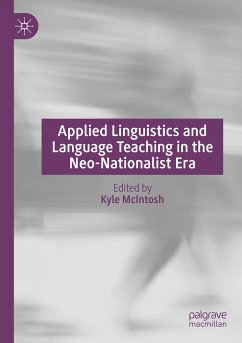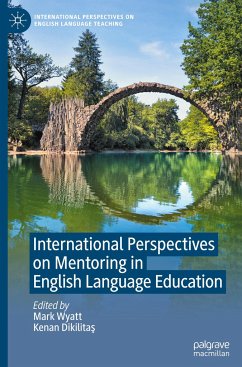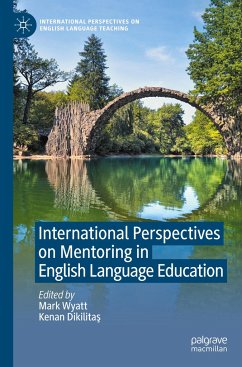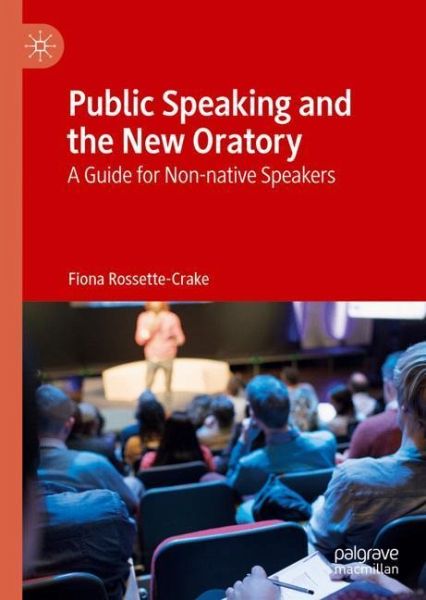
Public Speaking and the New Oratory
A Guide for Non-native Speakers
Versandkostenfrei!
Versandfertig in 6-10 Tagen
61,99 €
inkl. MwSt.
Weitere Ausgaben:

PAYBACK Punkte
31 °P sammeln!
This book provides a research-led guide to public speaking in English, using the foundations of applied linguistics research to analyse elements of spoken presentation, including content, form, persona and audience interaction. The author also introduces and analyses case studies of what she calls 'the New Oratory', examining such modern speaking formats as the three-minute-thesis presentation, the investor pitch and TED talks, making this book a cutting-edge exploration of how public speaking is conducted in an increasingly digitalised world. It provides essential advice for non-native Englis...
This book provides a research-led guide to public speaking in English, using the foundations of applied linguistics research to analyse elements of spoken presentation, including content, form, persona and audience interaction. The author also introduces and analyses case studies of what she calls 'the New Oratory', examining such modern speaking formats as the three-minute-thesis presentation, the investor pitch and TED talks, making this book a cutting-edge exploration of how public speaking is conducted in an increasingly digitalised world. It provides essential advice for non-native English speakers and speakers of English as a Second Language (ESL) whose work or study requires them to present in English, but will also be of interest to students and scholars of applied linguistics and business communication.





